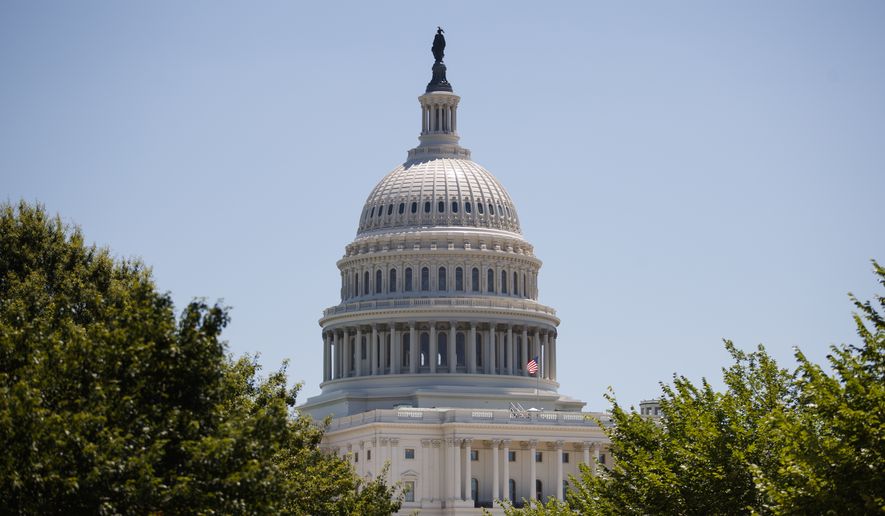Congressional leaders are banking on a new plan to fund the government and end the current cycle of fiscal cliffs, but that plan could face a snag in the House.
House Speaker Mike Johnson negotiated a deal with other congressional leaders to extend government funding just long enough to give appropriators time to finish work on the dozen spending bills. The latest stopgap bill passed Thursday gives lawmakers until March 8 and March 22 to pass those bills.
Part of that deal was to parse the 12 bills into two packages of six, called minibuses on Capitol Hill. The first package is expected to be voted on next week and will likely hit resistance from House Republicans.
They vowed at the beginning of the delayed spending cycle to pass bills individually, a feat that hasn’t been accomplished in decades, in an effort to break the reliance on massive, catchall spending packages called omnibuses.
Another component of that promise was to let lawmakers comb through spending bills individually and tack on amendments that their peers could easily review.
Members of the archconservative House Freedom Caucus have already promised to oppose the spending packages. Rep. Bob Good, chairman of the caucus, said he won’t back them because they likely won’t yield any Republican policy wins.
“We’re surrendering on policy,” said Mr. Good, Virginia Republican. “We’re going to get very little in the way of policy changes, I expect.”
Many of the policy changes that the archconservatives want include so-called poison pill policy riders, like nixing the Pentagon’s abortion travel reimbursement policy, which Democrats have demanded be left out of spending bills.
The text of the first package, which includes funding legislation for veterans, agriculture, interior, transportation, energy and water, commerce, justice and science, has not been released, but is expected to come out over the weekend.
Rep. Garret Graves, Louisiana Republican, contended that the minibuses would have conservative policy wins, like ending spending levels previously set by Democrats.
He argued that using smaller spending packages “was what everyone expected from the beginning.”
Others vouched for Mr. Johnson and believed that his decision to advance smaller spending packages was the right thing to do, given the nature of the GOP’s paltry majority.
Rep. Patrick McHenry, North Carolina Republican, who has not shied away from being critical of Mr. Johnson during his tenure as speaker, lauded his actions for getting a deal on another stopgap and the pair of spending packages.
“It’s a lot of drama to lead up to something that is inevitable, but the speaker should be commended for taking a wise course of action,” Mr. McHenry said.
Because of the simmering rebellion in his conference, Mr. Johnson will probably turn to Democrats to pass the impending spending package.
Rep. Troy Nehls, Texas Republican, scoffed at the possibility of the speaker turning to Democrats to pass spending bills even though Mr. Johnson had to rely on them to pass the stopgap after nearly 100 Republicans voted against it.
“The same 100 that voted against [the stopgap] may be the same 100 that will do the same damn thing on that,” Mr. Nehls said. “Isn’t it something how this place works?”
• Alex Miller can be reached at amiller@washingtontimes.com.




Please read our comment policy before commenting.